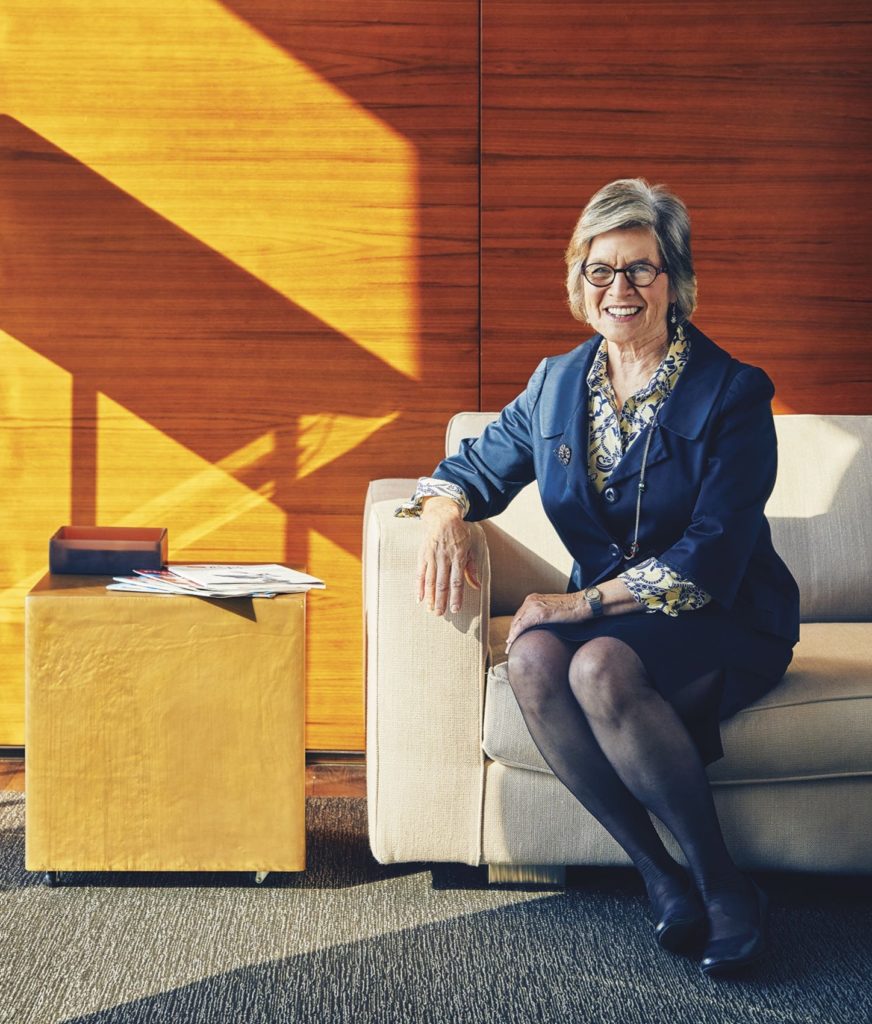Few lawyers are as trailblazing as Sheila Block. When she went to law school, in 1969, she was one of only eight women in her class. After graduation, she became the first female litigation associate at Torys LLP. Since then, her work on major lawsuits — the Nortel bankruptcy, for instance — has made her one of the most sought-out trial lawyers. And recently, she added another trendsetting job to her resumé: advisor and instructor at the Law Practice Program (LPP), the new path to licensing offered at Ryerson University.
The eight-month program has three parts: online training (in which candidates run a virtual law firm), a work placement and three weeks of on-campus instruction. During each on-campus week, one day is set aside for a trial-advocacy workshop, led by Block and her husband, Jim Seckinger, a law professor in the United States. The training is practical. To learn the art of witness examinations, candidates practise asking each other clear questions, free of mumbling or jargon. Here, Block explains why such training is so vital.

Sheila Block, a partner at Torys LLP, trains candidates of the Law Practice Program at Ryerson University in the fundamentals of trial advocacy
What do you enjoy most about teaching?
I really hope I’m doing something useful for other people. But I also love teaching because it forces me to focus on the fundamentals that, quite frankly, I sometimes fail to employ myself. I learn a lot.
What makes your trial-advocacy training, which is a big part of the Law Practice Program, so valuable to students?
It offers candidates structured training, with a focus on practical skills. For example, candidates learn how to speak to a judge and present a case professionally. They also learn how a trial unfolds. These are things most articling students don’t learn, but that are terribly important.
Some lawyers cling to the belief that articling is the only way to train lawyers. What are they getting wrong?
Look, it would be great if everyone could get a terrific articling job, where they worked under fabulous practitioners who taught them everything they know. But guess what? That doesn’t always happen.
The quality of articling experiences is all over the map. Many are great, but some students spend too much time on repetitive tasks, such as document review and due diligence, and not enough time on work that will help them grow. Firms are also hiring fewer students, at a time when there are a growing number of law grads. So there aren’t as many top-notch jobs for all of them.
So change is a good thing?
Absolutely. Look at women. When I entered my firm, there were no women. Law firms thought, We can’t hire women, because as soon as they get married and have children, they’ll be gone. That was a prevailing attitude by very decent people. These days, diversity — and not just gender diversity — is an ideal that we’re trying to put into practice.
How important is it, then, for the profession to support the Law Practice Program, which aims to change up how we train lawyers?
It’s very important. Now, I realize change is difficult. And in a long and storied profession like ours, with all of its traditions, change is even harder. But as time marches on, the profession has to change.
The Law Practice Program at Ryerson University is a rigorous eight-month training program that equips law-school graduates with the practical skills they need to become great lawyers. To learn more, visit ryerson.ca/lpp.
 This story is from our Winter 2017 Issue.
This story is from our Winter 2017 Issue.


